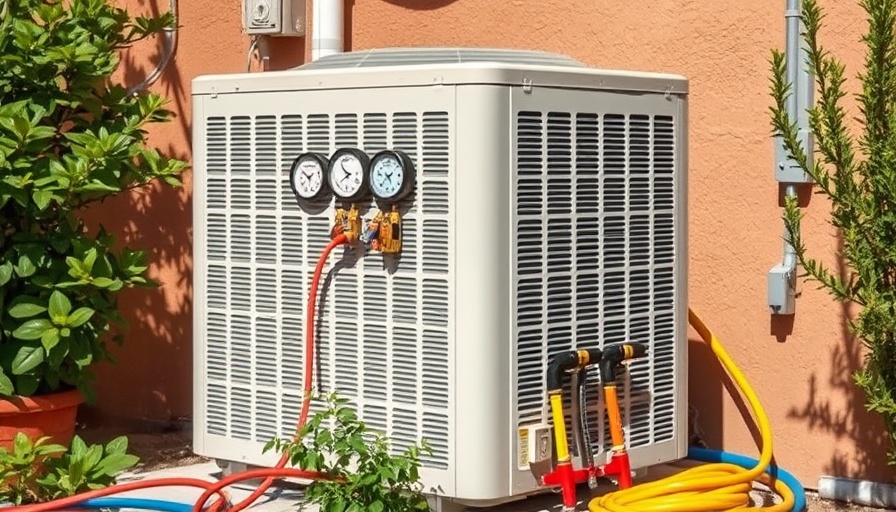
Is Air Conditioning a Basic Right?
In the heat of summer, North Carolina's sweltering temperatures can pose significant health risks for residents without adequate cooling systems. As climate change brings about more frequent and intense heat waves, the conversation surrounding air conditioning access is becoming increasingly relevant. Recently, North Carolina legislator Rep. Tracy Clark has stepped forward, advocating for a bill that would make air conditioning a mandatory amenity in all rental properties across the state.
Understanding the Bill: House Bill 879
Rep. Clark's proposed House Bill 879 aims to classify air conditioning not as an optional luxury, but as a necessary requirement for ensuring tenant health and safety. Currently, North Carolina law only mandates landlords to provide properties in "fit premises" condition, which includes heating and timely repairs. However, the absence of a cooling requirement has raised concerns among housing advocates, particularly in the context of public health.
The Health Implications of Inadequate Cooling
Lack of air conditioning can lead to severe impacts on tenant health, particularly for vulnerable populations including the elderly, young children, and those with pre-existing health conditions. High temperatures can exacerbate chronic illnesses, leading to heat exhaustion or even heat strokes. By mandating air conditioning, the state may not only improve quality of life for many renters but also enhance overall public health outcomes. As this issue gains traction, Charlotte NC wellness advocates are already discussing the connection between heat exposure and various health issues, highlighting the urgency of the situation.
A Broader Perspective on Housing Standards
The move to require air conditioning in rental properties reflects a growing understanding of tenant rights and housing standards. It parallels other health-related housing requirements, such as the need for insulation and heating. As housing standards evolve, so too must our understanding of what constitutes a safe and healthy living environment. Advocates argue that ensuring adequate cooling should be part of a comprehensive approach to public health policy that takes into account climate variations and heating effects on indoor environments.
Public Support and Legislative Proceedings
Support for Rep. Clark's initiative has been growing among housing advocates, who argue that access to air conditioning can help avert health emergencies during extreme weather conditions. To understand the public sentiment, local surveys indicate a strong preference for improved rental standards that protect tenants’ health and well-being. As the bill makes its way through legislative sessions, the respond that it receives could shape future housing policies in North Carolina.
What This Means for Charlotte Residents
For residents in Charlotte, the implications of this legislation could be profound. The city has seen a notable increase in summer temperatures, which, coupled with humidity, heightens the risk of heat-related illnesses. If this bill passes, it may not only change the landscape of rental housing but also align with the Charlotte health sector's emphasis on preventive care. Public health followers and healthcare workers have the opportunity to engage in discussions surrounding this bill, advocating for better living conditions for all city residents.
A Call to Action: Supporting Health Policies
As the conversation about air conditioning access continues to unfold, it's crucial for residents to stay informed and involved. Advocacy for this bill aligns with broader efforts to improve public health and housing conditions statewide. For those passionate about health and wellness, keeping up with Charlotte healthcare news is essential. Supporting legislative measures that prioritize tenant welfare will ensure that all North Carolinians have access to safe and healthy living environments.
 Add Row
Add Row  Add
Add 




 Add Row
Add Row  Add
Add 

Write A Comment